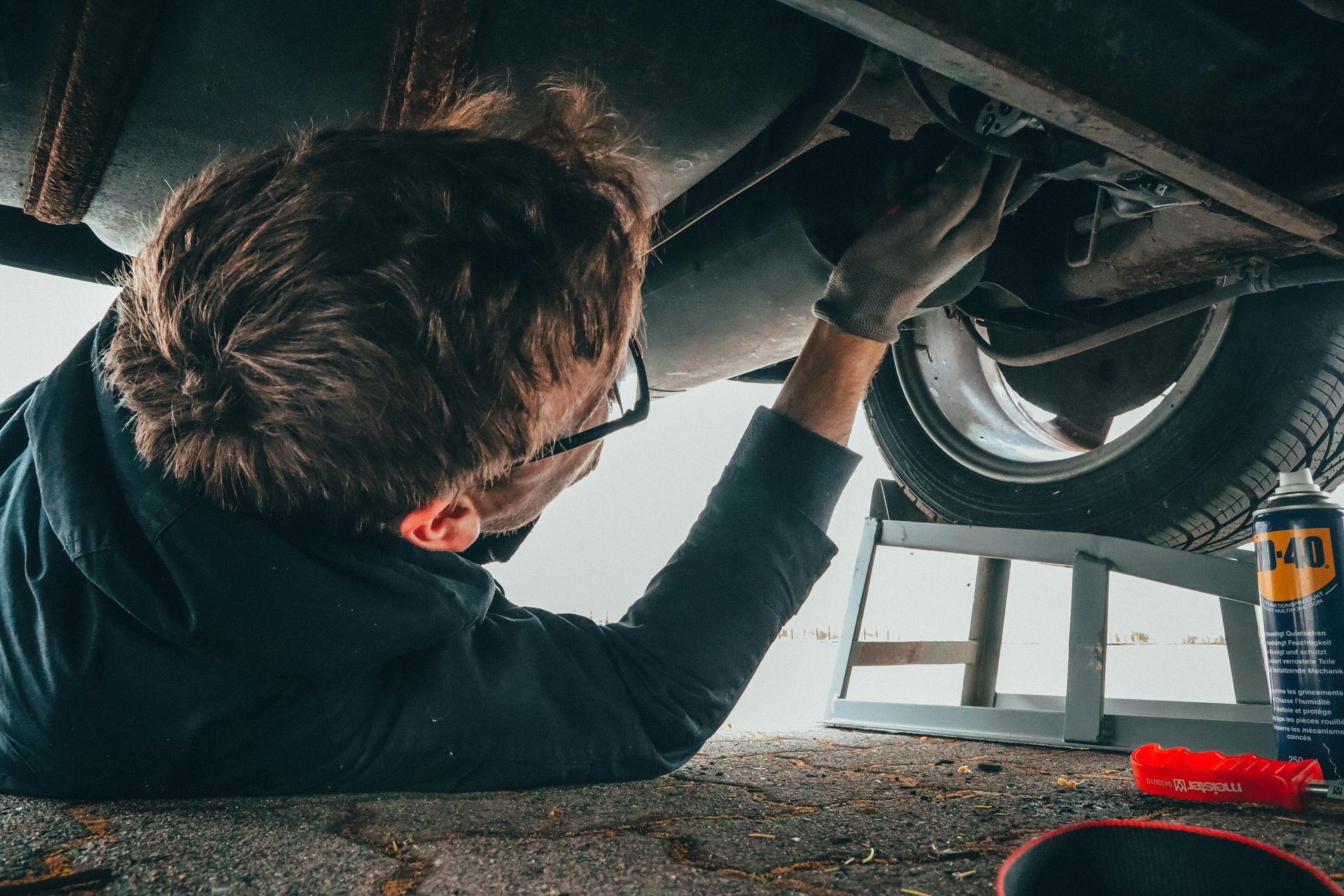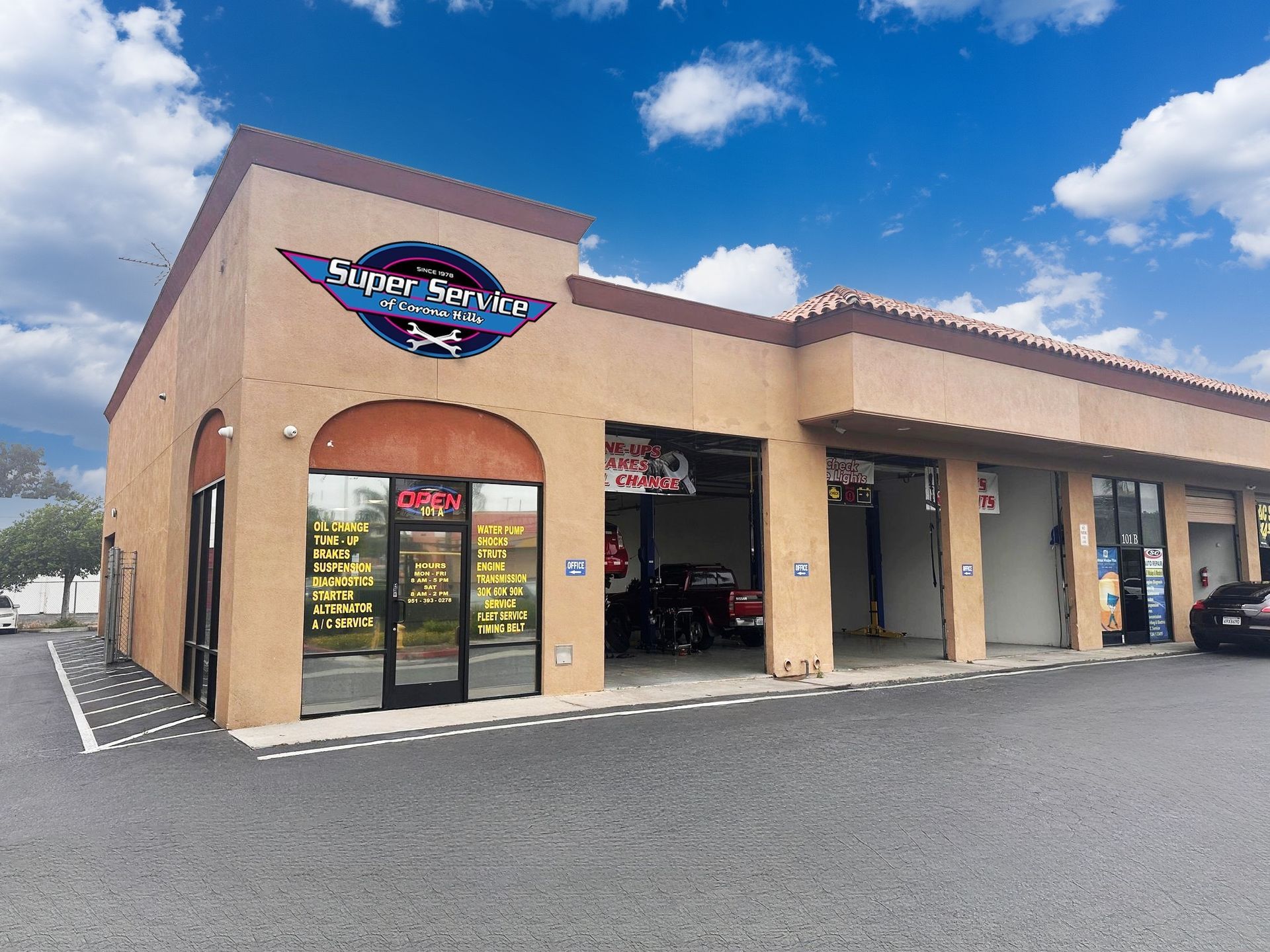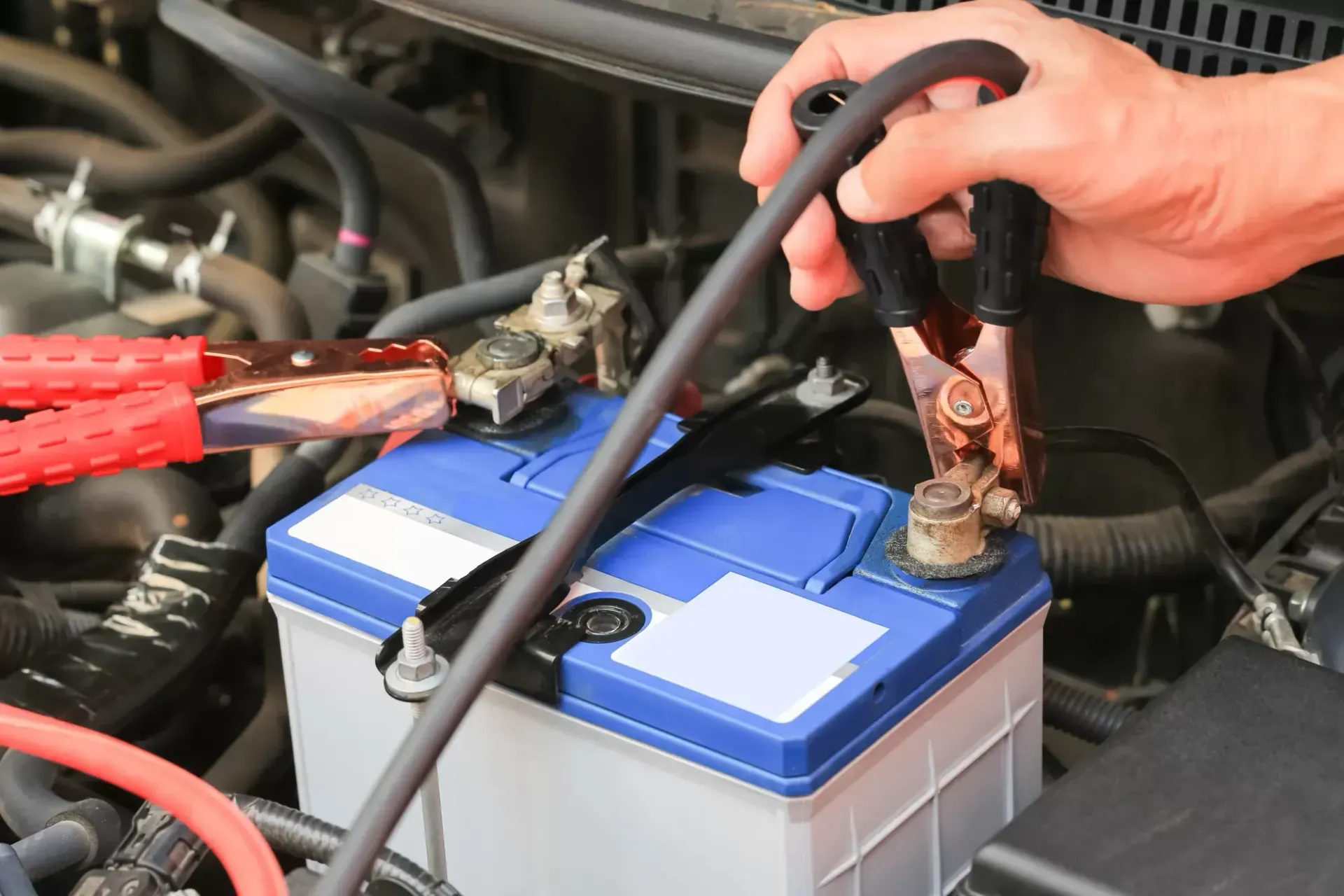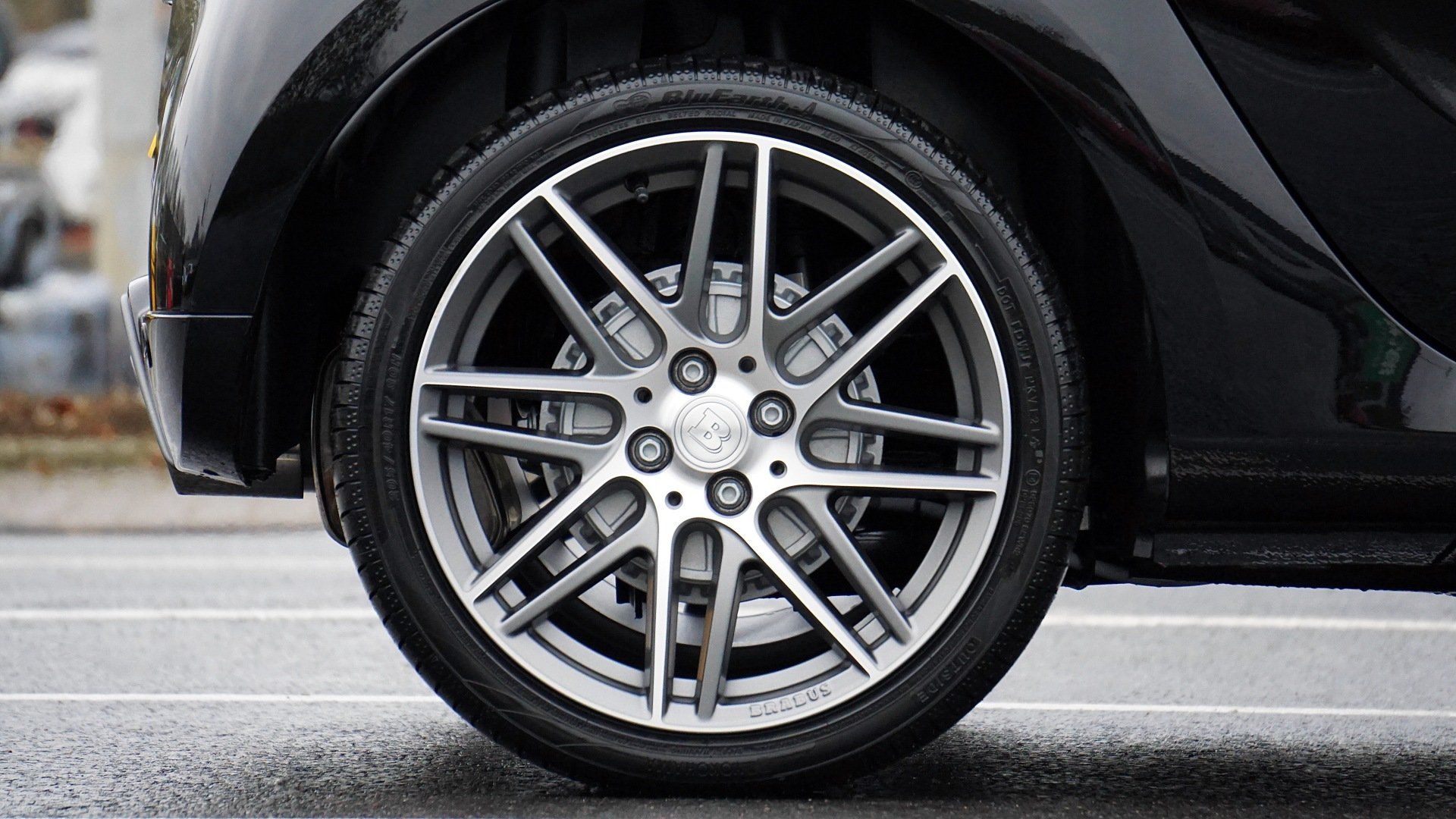Car Clinic is now Super Service of Corona Hills!
Blog Layout
Beat the Heat: Summer Car Care Tips to Keep You on the Road
Bob Cornwall • March 5, 2025
Beat the Heat: Summer Car Care Tips to Keep You on the Road
Summer can be tough on your vehicle, with soaring temperatures, intense sun exposure, and increased road travel placing extra strain on essential components. Proper maintenance and preparation can help prevent breakdowns, improve performance, and ensure a smooth and safe driving experience throughout the season. Here’s a comprehensive guide to keeping your car in top condition during the hot summer months.
1. Check and Maintain Your Cooling System
One of the most critical systems to monitor during summer is your car’s cooling system. Overheating can cause severe engine damage, leading to costly repairs. Here’s how to keep it in check:
• Inspect Coolant Levels: Ensure the coolant is filled to the recommended level and is not old or contaminated. Coolant should generally be flushed and replaced according to the manufacturer’s schedule.
• Examine Hoses and Belts: Check for cracks, leaks, or signs of wear, especially in the radiator hoses, which transport coolant through the engine.
• Monitor the Radiator: Keep it clean and free from debris to maintain efficient cooling performance.
• Check the Thermostat: A failing thermostat can cause overheating, so ensure it is functioning correctly.
2. Keep Your Engine Oil Fresh
High temperatures can accelerate oil breakdown, reducing its ability to lubricate the engine effectively. Follow these steps to keep your engine running smoothly:
• Check Oil Levels Regularly: Ensure that your oil is at the proper level and not too dark or dirty.
• Change Oil if Needed: If it’s time for an oil change, use the recommended oil viscosity for summer driving conditions.
• Inspect for Leaks: Any oil leaks should be addressed immediately, as low oil levels can lead to engine damage.
3. Ensure Proper Tire Care
Hot weather can cause tire pressure to rise, increasing the risk of blowouts. Proper tire maintenance is crucial for both safety and fuel efficiency.
• Check Tire Pressure: Inspect the pressure regularly and adjust it according to the manufacturer’s specifications.
• Monitor Tire Tread: Ensure your tires have adequate tread depth to provide proper traction, especially in wet conditions.
• Rotate and Balance Tires: Regular rotation and balancing help prevent uneven wear and prolong tire life.
• Check for Cracks or Bulges: Extreme heat can cause rubber to weaken, leading to tire failure.
4. Test Your Battery
Summer heat can be just as hard on your battery as winter cold. Excessive heat can cause battery fluid to evaporate, leading to corrosion and reduced performance.
• Inspect for Corrosion: Clean any buildup on the battery terminals and apply anti-corrosion grease.
• Check the Charge: If your battery is older than three years, have it tested to ensure it holds a charge.
• Secure the Battery: Ensure it is properly mounted to prevent vibrations that can damage internal components.
5. Maintain the Air Conditioning System
A properly functioning air conditioning system is essential for summer driving comfort. Here’s how to keep it in top shape:
• Test the A/C System: Turn on the air conditioning to ensure it blows cold air. If it’s not cooling effectively, it may need a refrigerant recharge or servicing.
• Check for Leaks: Look for leaks in the refrigerant lines, as low refrigerant levels can cause the system to underperform.
• Replace Cabin Air Filters: Dirty filters can reduce airflow and make your A/C less effective.
6. Protect Your Car’s Exterior and Interior
Sun exposure can cause fading and damage to both the interior and exterior of your vehicle. Protecting your car from the sun’s rays can help maintain its value and appearance.
• Wash and Wax Regularly: A layer of wax provides a protective barrier against UV rays and heat.
• Use a Sunshade: When parking for extended periods, use a sunshade to keep the interior cooler.
• Tint Your Windows: If legal in your area, window tinting can help reduce heat buildup inside your vehicle.
• Use Seat Covers and Dashboard Protectors: Prevents cracking and fading due to prolonged sun exposure.
7. Inspect and Replace Wipers If Needed
Summer storms can create hazardous driving conditions. Ensure your windshield wipers are in good condition for optimal visibility.
• Check for Streaking or Skipping: Worn-out wiper blades can make it difficult to see during rain showers.
• Replace if Necessary: Most wiper blades should be replaced every six months to a year.
• Keep Washer Fluid Full: Top off your washer fluid to clear debris and bugs from your windshield effectively.
8. Monitor Your Brakes
Brakes are crucial for safety, especially in hot weather when stopping distances can increase due to heated road surfaces.
• Listen for Unusual Noises: Squeaking or grinding sounds can indicate worn brake pads.
• Check Brake Fluid: Ensure it is at the correct level and not contaminated.
• Test Brake Responsiveness: If you notice sponginess or reduced stopping power, have your brakes inspected immediately.
9. Plan for Road Trips
Summer is a prime time for long road trips, so preparation is key to avoiding breakdowns on the road.
• Check Fluid Levels: Ensure oil, coolant, transmission fluid, and brake fluid are at the proper levels.
• Inspect Lights and Signals: Make sure all headlights, brake lights, and turn signals are working correctly.
• Pack an Emergency Kit: Include items such as water, a flashlight, jumper cables, a first aid kit, and basic tools.
10. Drive Smart to Reduce Heat Strain
Your driving habits can impact how well your car handles summer conditions. Follow these tips for better performance and efficiency:
• Avoid Sudden Acceleration and Hard Braking: This reduces heat buildup in the engine and brake system.
• Park in the Shade: Whenever possible, park in shaded areas to keep your car cooler.
• Keep Windows Slightly Open: Allowing a small gap can reduce internal heat buildup.
• Limit Use of Heavy Loads: Excess weight can put additional stress on the engine and cooling system.
Final Thoughts
Taking the time to prepare your vehicle for summer can prevent unexpected breakdowns, improve fuel efficiency, and enhance safety. By maintaining key components such as the cooling system, tires, battery, and air conditioning, you can enjoy a smooth and comfortable ride during the hot months. Regular inspections and smart driving habits will not only extend the lifespan of your car but also ensure a stress-free summer on the road.
By Bob Cornwall
•
April 2, 2025
Every vehicle owner knows that regular maintenance is key to keeping their car running smoothly. Among the most essential maintenance tasks is an oil change. Oil is the lifeblood of your vehicle’s engine, ensuring that all moving parts function smoothly, preventing overheating, and reducing the risk of engine damage. Whether you’re driving a brand-new car or a seasoned model, regular oil changes are a vital component of preserving your vehicle’s health. At Super Service of Corona Hills, we understand how important it is to keep your engine in top condition. As Oil Change Specialists in Corona, CA, we are committed to providing you with professional, reliable, and efficient oil change services that help maintain the performance and longevity of your vehicle. In this blog, we’ll explain why oil changes are so important, the signs that indicate it’s time for an oil change, and how Super Service of Corona Hills ensures a seamless and hassle-free service experience. What Does Oil Do for Your Vehicle? Before diving into the importance of oil changes, it’s essential to understand the critical role that oil plays in your vehicle’s engine. Oil serves several vital functions that are crucial to the proper operation of your vehicle: 1. Lubrication Oil lubricates the engine’s moving parts, preventing them from grinding together. Without lubrication, the metal components of the engine would create friction, which could lead to excessive wear and tear, overheating, and potentially catastrophic engine damage. 2. Cooling the Engine While the radiator and coolant system help manage the engine’s temperature, oil also plays a role in cooling. Oil absorbs the heat produced by the engine’s moving parts and helps dissipate it, ensuring the engine doesn’t overheat. 3. Cleaning the Engine Oil helps keep your engine clean by trapping dirt, debris, and other contaminants. Over time, however, the oil can become dirty and lose its effectiveness, which is why regular oil changes are necessary to keep the engine clean and running efficiently. 4. Protecting Against Corrosion Oil creates a protective layer on the metal parts of your engine, preventing rust and corrosion. The contaminants in oil, such as moisture, can cause the engine to deteriorate over time. Fresh oil helps prevent this buildup. Why Regular Oil Changes Are Crucial At Super Service of Corona Hills, we often emphasize the importance of routine oil changes. Regular oil changes provide numerous benefits for your vehicle, including: 1. Improved Engine Performance Fresh oil keeps your engine running smoothly. As oil ages, it becomes less effective at lubricating the engine and protecting the moving parts. Old, dirty oil can cause sluggish performance and a noticeable decrease in fuel efficiency. Regular oil changes ensure that your vehicle runs at its best, enhancing performance and fuel economy. 2. Prevents Engine Overheating Without fresh oil, your engine’s parts will rub against each other, causing friction and heat. This increases the risk of the engine overheating. Regular oil changes help prevent this, ensuring that the engine stays cool and runs efficiently. 3. Extends Engine Life Changing your oil regularly extends the life of your engine. Oil helps reduce friction and wear on internal engine components, which can lead to expensive repairs if left unchecked. A well-maintained engine lasts longer, which can save you thousands in repair or replacement costs. 4. Better Fuel Efficiency Old or low oil levels can make the engine work harder, which in turn can reduce fuel efficiency. Fresh oil helps your engine run more smoothly, improving your vehicle’s gas mileage. Regular oil changes help you get the most out of every gallon of gas, saving you money in the long run. 5. Reduces Emissions Dirty oil can contribute to increased engine emissions, which can harm the environment. By ensuring that your engine is running clean and efficiently, regular oil changes help reduce harmful emissions, keeping your car eco-friendly and compliant with environmental regulations. How Often Should You Change Your Oil? How often you need an oil change depends on several factors, including the type of oil used, the make and model of your vehicle, and your driving habits. However, as a general rule, most vehicles require an oil change every 3,000 to 7,500 miles. Some newer vehicles may even be able to go longer between oil changes, thanks to improved technology and synthetic oils. At Super Service of Corona Hills, we recommend following the manufacturer’s guidelines for your specific vehicle. Our skilled technicians are here to help you understand your car’s needs and ensure that you stay on top of maintenance schedules to avoid unnecessary wear and tear on your engine. If you frequently drive in harsh conditions, such as stop-and-go traffic, short trips, or extreme temperatures, you may need to change your oil more often. It’s also essential to monitor your vehicle’s oil level and condition regularly, as factors like leaks or burning oil can require more frequent changes. Signs It’s Time for an Oil Change While the general rule is to change your oil every 3,000 to 7,500 miles, there are several signs that may indicate it’s time for a change even before reaching that mileage. Here are a few key indicators that your vehicle may need an oil change: 1. Dirty or Dark Oil Fresh oil is typically amber in color, but as it becomes contaminated with dirt and debris, it darkens. If you notice that your oil looks thick and dark when you check it, it’s a sign that it’s time for a change. 2. Engine Noise If your engine starts making knocking or ticking noises, it could be a sign that the oil is too thick and not circulating properly. This can cause friction between engine parts, which could lead to long-term damage. 3. Oil Smell Inside the Cabin If you notice an oil smell inside the car’s cabin, it’s often a sign of an oil leak or burning oil. This is a serious issue that should be addressed immediately to prevent further damage to the engine. 4. Oil Change Warning Light Most vehicles have an oil change indicator light that will appear on your dashboard when the system detects that it’s time for an oil change. If you see this light, don’t ignore it! It’s your car’s way of reminding you to take care of this essential maintenance task. 5. Reduced Engine Performance If your car feels sluggish, lacks power, or has decreased fuel efficiency, dirty oil may be contributing to the problem. Regular oil changes ensure that the engine runs efficiently, so if you notice a performance decline, an oil change might be in order. Why Choose Super Service of Corona Hills for Your Oil Change? At Super Service of Corona Hills, we are committed to providing the highest quality oil change services to keep your vehicle running smoothly. As Oil Change Specialists in Corona, CA, we offer several advantages that make us the go-to choice for your vehicle’s oil change needs: 1. Expert Technicians Our team of skilled, certified technicians is dedicated to delivering the best oil change service possible. We have certifications from AAA, ASE, TECHNET, and Repairpal, which reflect our commitment to excellence and professional expertise. Our technicians have the knowledge and experience to handle all types of vehicles and ensure that your oil change is done right the first time. 2. Convenient and Quick Service We understand that your time is valuable, which is why we strive to make the oil change process as quick and convenient as possible. You won’t have to spend hours waiting around—our team works efficiently to get you back on the road fast. 3. High-Quality Oil and Filters We use only the best oils and filters to ensure that your engine gets the best protection possible. Whether you need synthetic oil or conventional oil, we have the right products to suit your vehicle’s needs. Our high-quality oils help extend the life of your engine, improve fuel efficiency, and reduce emissions. 4. Comprehensive Vehicle Inspections In addition to performing oil changes, we offer comprehensive vehicle inspections to check for any potential issues. During your oil change service, we’ll inspect key components such as the tires, brakes, and belts to ensure that your car is running smoothly and safely. 5. Warranty and Customer Satisfaction At Super Service of Corona Hills, we stand behind our work. We offer a warranty on our services and are committed to ensuring your complete satisfaction. If you have any concerns or questions, our friendly team is here to address them promptly. Final Thoughts Regular oil changes are one of the easiest and most effective ways to keep your vehicle in optimal condition. By ensuring that your engine is properly lubricated and protected, you can extend the life of your vehicle, enhance its performance, and prevent costly repairs down the line. At Super Service of Corona Hills, we are proud to be your trusted Oil Change Specialists in Corona, CA. Our team is dedicated to providing fast, reliable, and professional oil change services that keep your vehicle running smoothly. Whether you need an oil change or other vehicle maintenance, we’re here to help.
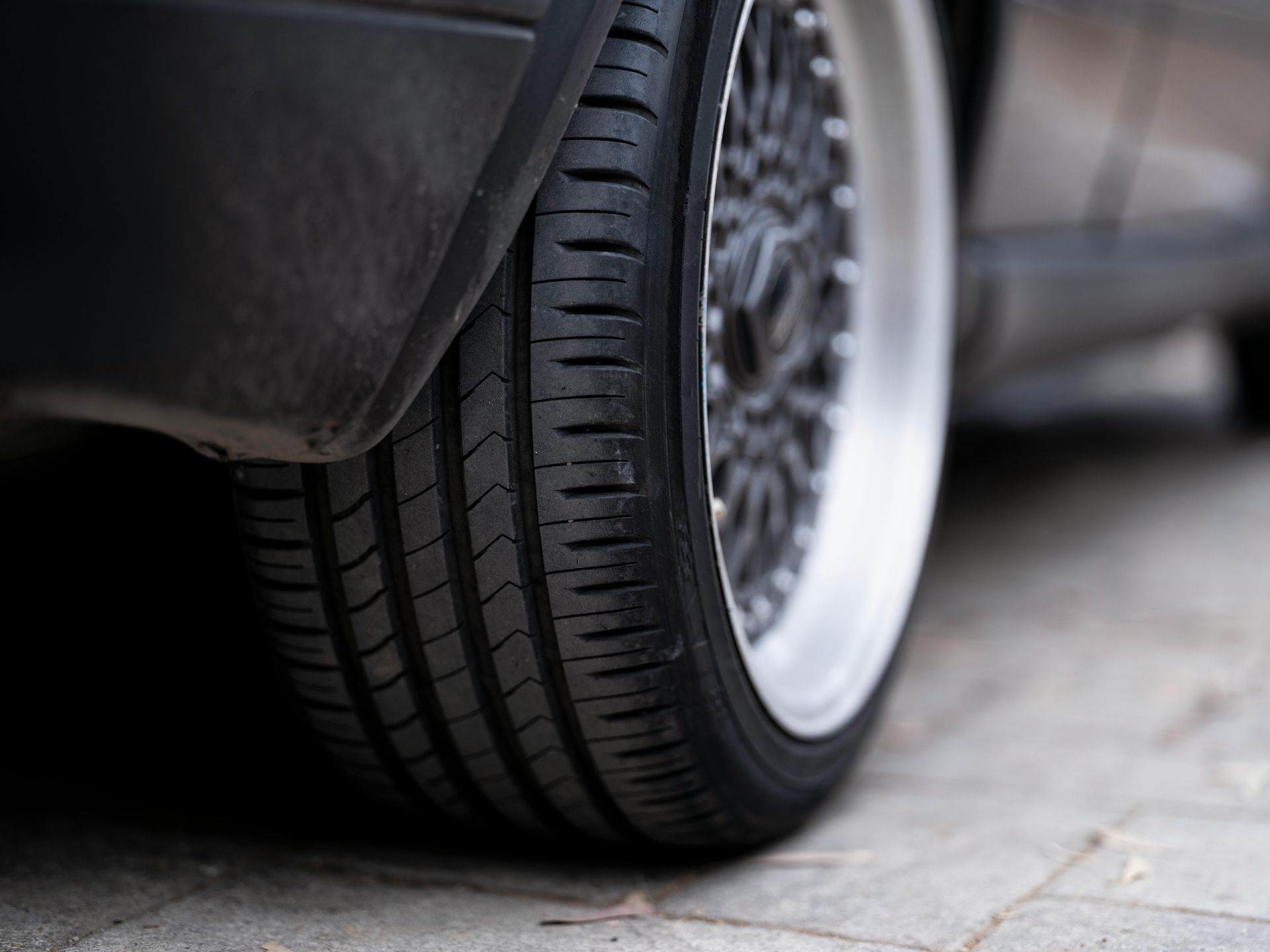
By Bob Cornwall
•
April 1, 2025
Wheel alignment is one of the most overlooked aspects of vehicle maintenance, yet it plays a crucial role in keeping your car safe and performing at its best. If your wheels are out of alignment, it can lead to uneven tire wear, poor handling, and even decreased fuel efficiency. A misaligned vehicle may not always be obvious, but there are clear warning signs to look out for. By catching these issues early, you can prevent unnecessary wear and tear on your tires and suspension. Here’s how to tell if your car needs a wheel alignment and why getting it checked is essential for your safety and wallet. If you’re experiencing any of these symptoms, the team at Super Service of Corona Hills is here to help. Schedule your wheel alignment service today: https://www.superserviceofcoronahills.com/ Your Car Pulls to One Side One of the most common signs of misalignment is when your car drifts or pulls to one side while driving on a straight road. A properly aligned vehicle should drive straight without needing constant correction from the steering wheel. If you find yourself frequently adjusting your steering to keep your car centered, it’s time to have your alignment checked. Even a slight pull can indicate uneven tire wear and impact your vehicle’s handling. Left unchecked, it can also put extra strain on your steering and suspension components. Uneven or Rapid Tire Wear Your tires tell a story about your alignment. If you notice that one side of your tires is wearing down faster than the other, or if you see bald spots, your wheels may not be properly aligned. Uneven wear patterns can shorten the lifespan of your tires, leading to premature replacements and higher costs. Regular tire rotations help extend tire life, but without proper alignment, the issue will continue. Checking your alignment ensures even wear and helps you get the most out of your tires. A Crooked Steering Wheel When your wheels are aligned correctly, your steering wheel should sit centered when driving straight. If you notice that your steering wheel is slightly off-center even when you’re going straight, this is a strong indicator that your alignment is off. A misaligned steering wheel can also make handling feel loose or unstable, reducing your ability to control the vehicle effectively. If your wheel isn’t sitting correctly, it’s time to bring your car in for an inspection. Steering Feels Loose or Unstable If your steering feels overly loose or your vehicle feels wobbly at higher speeds, it could be due to alignment issues. Poor alignment affects the way your car responds to steering input, making it harder to drive smoothly and predictably. Ignoring this issue can lead to further suspension damage and put your safety at risk. A simple wheel alignment can restore control and stability to your driving experience. Squealing Tires Hearing a high-pitched squeal from your tires while turning or driving could mean your alignment is off. Misaligned wheels put extra pressure on your tires, causing them to scrub against the road surface and create noise. If you’ve been noticing tire squealing, especially at lower speeds, it’s best to get your alignment checked before it leads to further damage . How Often Should You Get a Wheel Alignment? Most experts recommend checking your alignment every 6,000 to 10,000 miles or at least once a year. However, certain driving conditions can cause misalignment to occur more frequently. If you frequently drive on rough roads, hit potholes, or go over curbs, your alignment may need attention sooner. Regular alignments help ensure a smoother ride, extend tire life, and improve overall vehicle handling. At Super Service of Corona Hills, we use advanced alignment technology to get your wheels back to their proper position for optimal performance. Schedule Your Wheel Alignment with Super Service of Corona Hills If you’ve noticed any of these warning signs, don’t wait until it leads to bigger issues. At Super Service of Corona Hills, our ASE-certified technicians specialize in precise wheel alignments to keep your car running safely and efficiently. Schedule your appointment today and let us get you back on track. Visit us at 2189 Sampson Ave #101a, Corona, CA, or book online at https://www.superserviceofcoronahills.com/
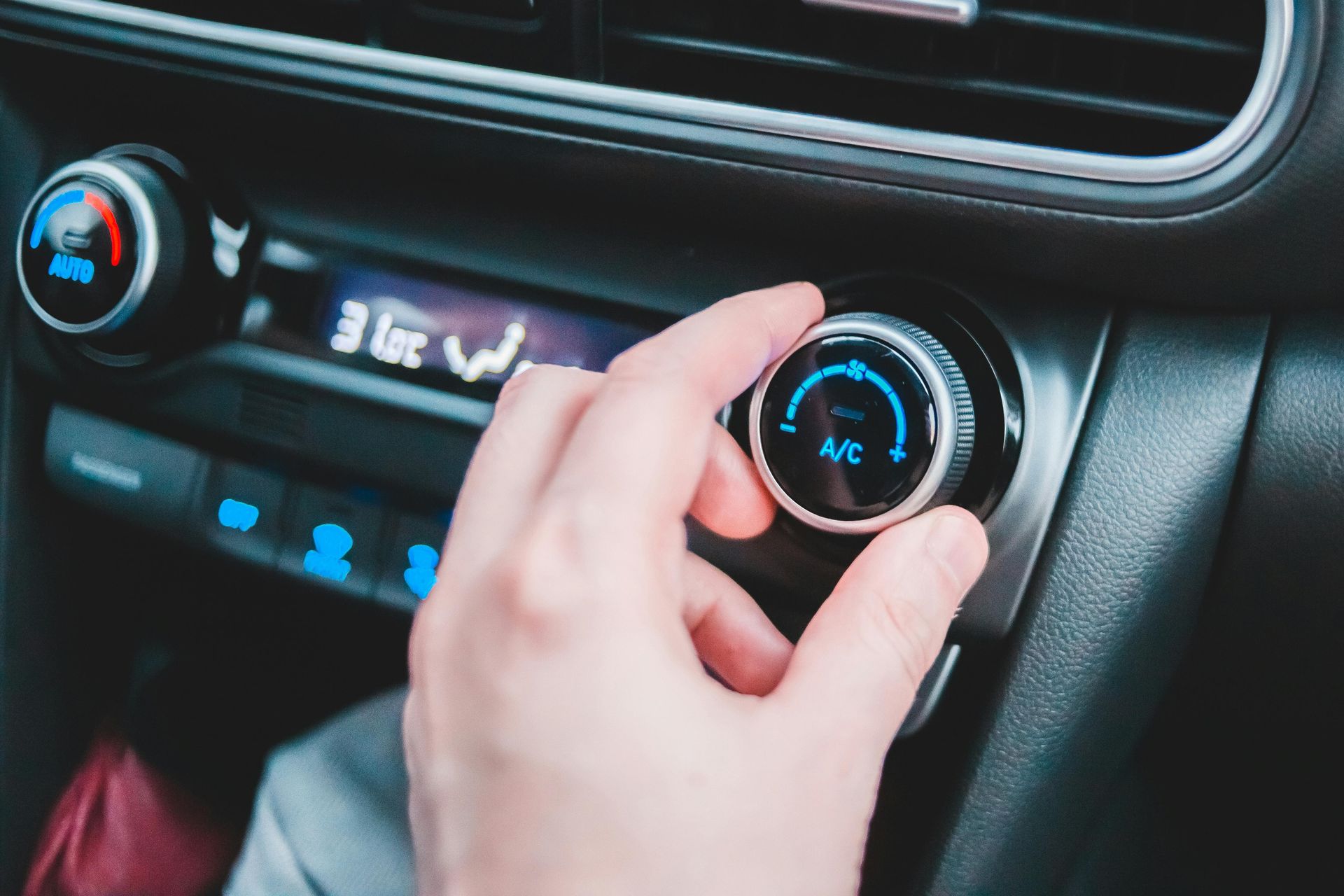
By Bob Cornwall
•
March 1, 2025
Your car’s cooling system is essential for preventing engine overheating and ensuring optimal performance. But what happens when it fails? At Super Service of Corona Hills, we want you to understand the warning signs and consequences of a failing cooling system so you can act before it leads to costly repairs.
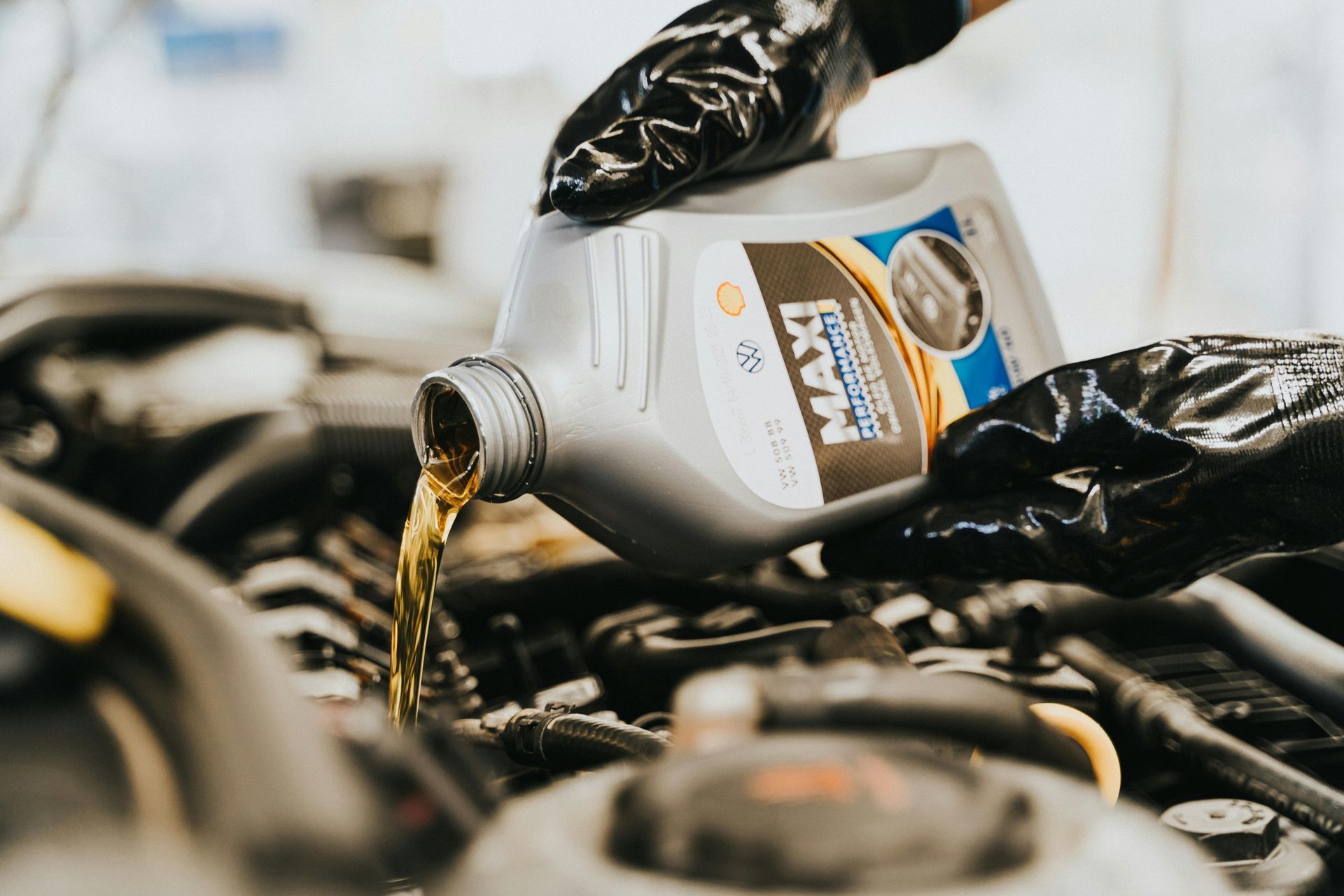
By Bob Cornwall
•
January 1, 2025
Oil changes keep your engine running smoothly and efficiently by reducing friction, preventing overheating, and removing contaminants. Neglecting regular oil changes can lead to costly repairs down the road. Let’s address some of the most common questions drivers in Corona Hills ask about oil changes. At Super Service of Corona Hills, we combine transparency, expertise, and convenience with every oil change service. Whether you’re unsure about the type of oil your car needs or how often to get it changed, we’ve got you covered. Schedule your next oil change with us today for friendly, impeccable service and peace of mind. How Often Should I Change My Oil? Oil change intervals depend on your vehicle and driving habits. Many modern cars can go 5,000 to 7,500 miles between oil changes, while older vehicles may need service every 3,000 miles. Always check your owner’s manual for manufacturer recommendations. If you frequently drive in stop-and-go traffic, tow heavy loads, or travel in extreme temperatures around Corona Hills, you might need oil changes more frequently. What Happens If I Don’t Change My Oil? Skipping oil changes can lead to serious problems: Engine damage: Dirty oil can cause excessive wear and tear on engine components. Overheating: Old oil loses its ability to cool the engine properly, increasing the risk of overheating. Sludge buildup: Contaminants can accumulate, clogging your engine and reducing performance. Avoid these risks by staying proactive with your vehicle’s oil changes! What Type of Oil Does My Car Need? There are several types of oil to choose from: Conventional oil is great for basic engines and budget-conscious drivers. Synthetic oil offers better performance and protection in extreme temperatures. High-mileage oil is designed for vehicles with 75,000+ miles. Our ASE-certified technicians at Super Service of Corona Hills can recommend the best oil for your vehicle based on its make, model, and mileage. Can I Change My Oil Myself? While it’s possible to change your own oil, there are benefits to leaving it to the professionals: Expert inspection: We’ll check for leaks and worn components during your oil change. Proper disposal: Used oil is hazardous and must be disposed of responsibly. Convenience: With our concierge service, including pickup and drop-off, getting an oil change has never been easier. Why Choose Super Service of Corona Hills for Your Oil Change? When you bring your car to Super Service of Corona Hills, you’re not just getting an oil change—you’re receiving a premium service experience. Here’s what sets us apart: Digital inspections with photos and videos so you can see exactly what’s happening with your vehicle. Concierge service including courtesy loaners, pickup & drop-off options, and 24-hour drop box availability. Expert care from ASE-certified Master Technicians using high-quality oil and parts. Plus, every service we provide is backed by our 3-year, 36,000-mile nationwide warranty for peace of mind. Trust Super Service of Corona Hills for Your Oil Change Needs Ready to take the hassle out of your oil changes? At Super Service of Corona Hills, we combine decades of expertise, cutting-edge technology, and customer-focused care to provide unparalleled service. Schedule your oil change today and discover why drivers across Corona Hills and the surrounding communities trust us with their vehicles. Let us transform your auto repair experience!
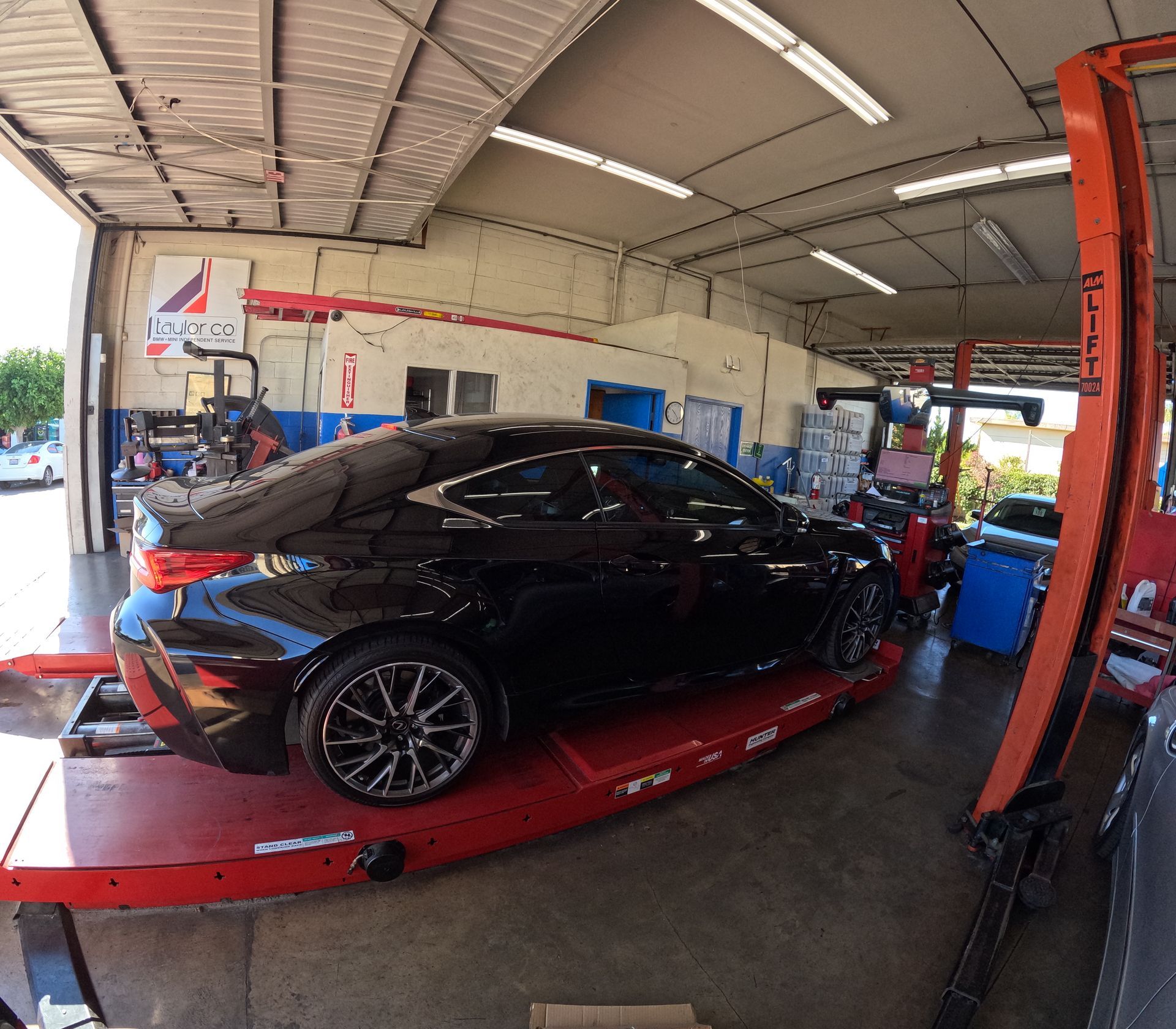
By Bob Cornwall
•
November 1, 2024
In Corona Hills, a dependable car is essential for both daily commutes and weekend adventures. One crucial component that often goes unnoticed until it fails is the alternator, a key part of your vehicle’s charging system that powers the electrical components and keeps the battery charged.

